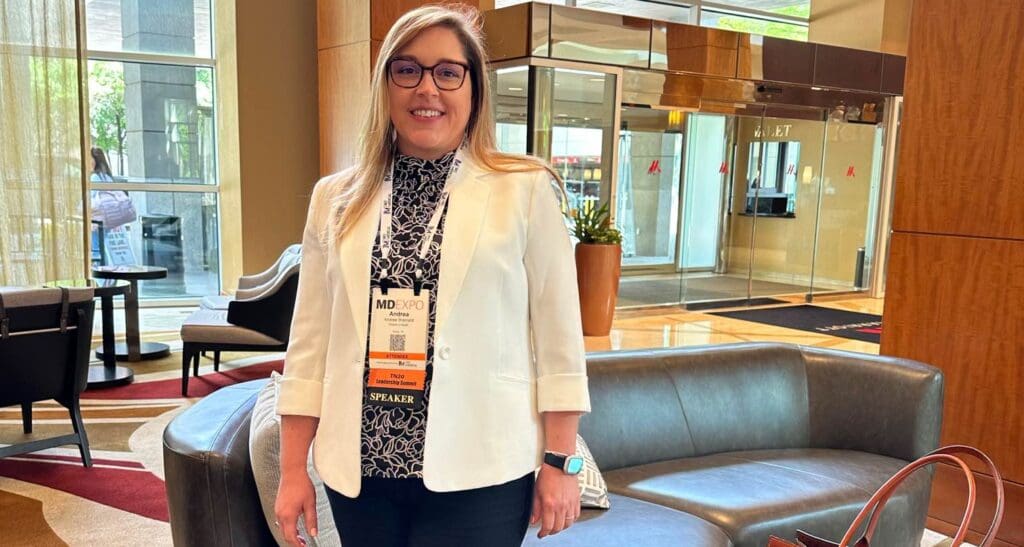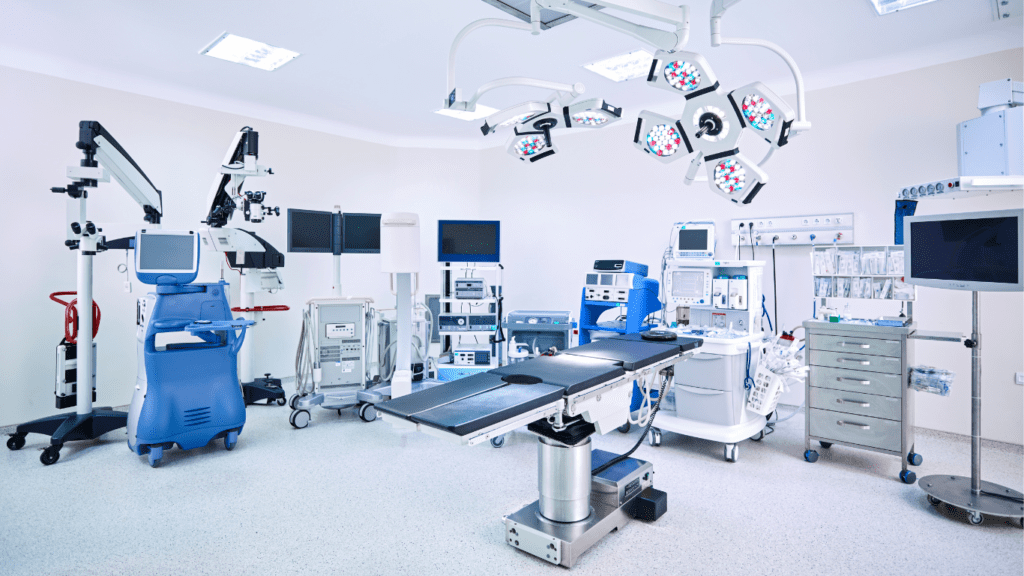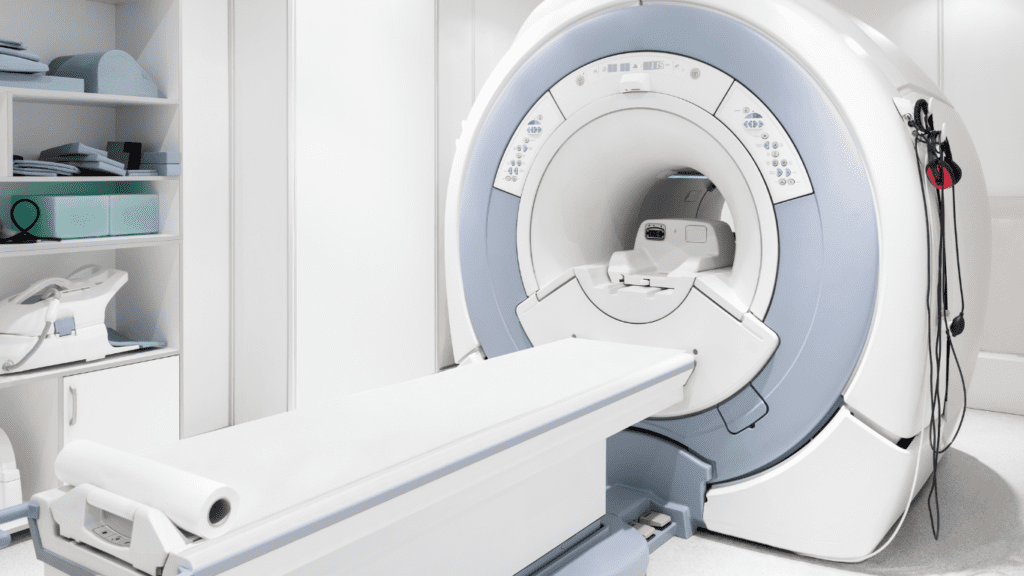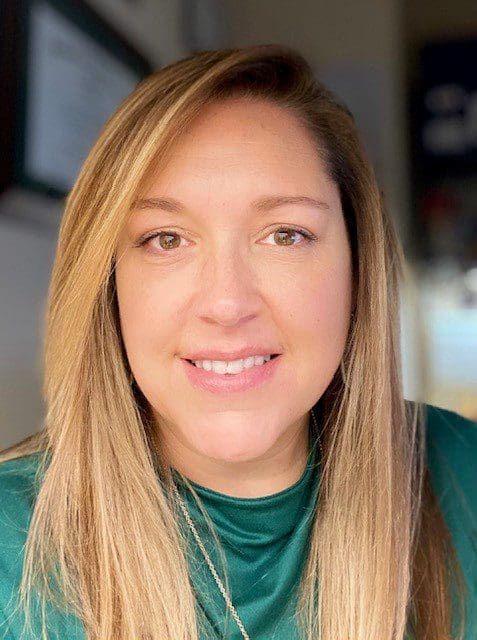Life of Senior Director Healthcare Technology Management (Children’s Health)
Andrea Brainard has over 26 years in healthcare technology and biomedical technology. She has worked as a Biomedical Technician and now manages Medical Engineers. Andrea works for Children’s Health and is based in Dallas in Texas.


Andrea Brainard, Senior Director Healthcare Technology Management for Children’s Health in Dallas Texas
Background and path to Biomedical Engineering
What came first for you – an interest in engineering, or an interest in medical technologies?
Neither. I had no idea what I wanted to do.
I had just moved to the United States two years prior as a junior in high school. So, I had a full ride scholarship to a university in New England but declined it as I didn’t want to move and had no idea what I wanted to do.
During my senior year in high school, I had been working on my car (rebuilding the engine) and it came very easily to me. However, I didn’t want to work on cars for a career (dirty job).
I met my now husband after graduating from high school and he was going to attend TSTC (Texas Stage Technical College) for diesel mechanics. So of course, I was in love and wanted to follow him. I looked at the course catalogue and saw biomedical equipment technology. I talked to the Dean about the program and the thing that got me fired up was he said it was a very male dominated field. That meant that I registered that day, and almost 30 years later, here I am.
Biomedical Engineer skills
Apart from a strong technical background, what are the three most important skills for a Biomedical Engineer to have?
Soft skills – communication, both verbal and written.
General computer skills including typing.
A “go getter” mentality.
Move to management and team leading in healthcare technology
How easy was it to move from being an engineer to managing engineers?
The transition from biomed tech to management was a difficult one for me. I had a hard time letting go of the hands-on repairs. It was an ownership thing that I didn’t want to relinquish.
Unfortunately, I was kind of thrown into management without having a mentor or much guidance. However, I thrive when something gets thrown at me, as I learn very well on my own, but not everyone does.
How important is it to remain hands-on at least for some of the time?
I like to stay hands-on with regards to the day to day. Knowing what’s going on, who’s doing what, on-going issues, etc. It’s about staying engaged with the front-line techs as well as leaders that report to me.
Management skills
How do you improve confidence in those who need it?
Giving them the opportunity to run with a project with minimal guidance. So, I do check ins, ask if help is needed and then have them be successful with the outcome.
How do you manage a poor work ethic?
This is a tough one for me as I’m a bit of a perfectionist and have high expectations. I’ve had to learn over the years that not everyone is like me. One way I ensure the work gets done regardless of poor work ethic is to set deadlines for staff and put the ball in their court to get it done. Another one is leading by example, and having open and honest feedback if a person’s work ethic is lacking.
It’s about communication and setting expectations.
How do you motivate your team?
Food!
Number one motivator.
I’m kidding, but it’s true.
We hold regularly scheduled huddles (informal meetings) to ensure everyone is engaged in their work. I share feedback to my teams as it occurs. We also try and have fun at work, creating an environment of trust. We try to have quarterly after-hours team outings to just relax and hang out (socialise).
How do you support someone in your team when things have gone wrong because of a mistake?
We use a “just culture” approach at my current organisation, which is a non-punitive approach to ensuring the mistake doesn’t occur in the future. Discussing what went wrong, how we can correct it or how it could have been done better. As I stated before, it’s all about open communication.


Advice for first management role
What is your advice to anyone starting their first management role?
Get a mentor!
For example, a leader in another department that you might already have a relationship with, or see if your organisation has a mentorship program, or use LinkedIn as a resource. Whatever you can, but looking back, having a mentor would have made my transition to management easier for me. You need someone who is not part of your direct leadership team to ask those hard questions, bounce ideas off, and use their experience and knowledge to further educate yourself.
Typical day as Senior Director Healthcare Technology
You are now the Senior Director Healthcare Technology Management. What exactly does your role involve?
Without getting into the minutia, it’s ensuring the department is represented at a strategic level when organisational changes are discussed and making sure HTM (Healthcare Technology Management) has a seat at the table for those conversations. I’m ultimately responsible for all things compliance related for HTM.
What is a typical day like for you?
Email and meetings!
I have a hybrid work role, meaning I’m both remote (home office) and in the hospital depending on the week. The days I only have one or two meetings I try and make it to the hospital to engage with my staff face to face.
What is the most challenging part of your job – technical side, people management or dealing with other organisations and companies?
People management for sure. Having numerous groups of various generations and different levels of education creates a lot of dynamics within HTM. Some of the people issues can be challenging at times, but we manage and take each issue in our stride as it comes up, involving our HR business partners as needed to get to a resolution.
Working and studying
You returned to studying whilst still working. How did you balance this?
I completed my bachelor’s degree a few years ago. Everything was online and it was all in the evenings. I just had the support of my family, and they knew if the door to my home office was closed, to leave me alone as I was studying.
How did you succeed and still keep a work life balance?
My husband stepped up and really helped:
ensured our son got to gymnastics,
cooked dinners,
and did pick up from school.
This allowed me undisturbed time to get college work completed. While some of my classes were challenging in the beginning, once I got into the swing of things, I knew how much time I had to dedicate weekly to get my work done in the evenings and it got easier. I tried to do most of my work while my son was at gymnastics in the evening, so I still had some of the weekend to spend with my family.
Would you recommend this to other Biomeds?
Yes, but it must be up to the individual if they wish to further their education. Getting my bachelor’s degree has strengthened my leadership abilities as I was able to apply what I learned in my day to day. A lot of leadership positions do require advanced degrees; it’s all about what your career plan is.


Women in engineering
The industry is changing but remains predominantly male. What do you think will change over the next ten years?
My hopes are that we get more females (and males) in the industry in general. There’s a huge shortage of biomed techs and healthcare is always going to need staff.
We must get the word out about this field to the younger generations to grow the field. Technology is going to continue to advance by leaps and bounds and with the added issue of cybersecurity, technicians will need to have a broader knowledge to successfully manage the equipment.
The way we educate technicians will also have to change. There are a lot of colleges across the country that have closed their programs due to lack of funding and/or enrolment. We have to think outside the box with apprenticeship programs or just on the job training for people with the right attitude and/or skillset who could become a good biomed tech.
How can more women be encouraged into the biomedical engineering industry?
We need to encourage women early on to not be afraid of STEM fields in general. Women don’t need to go into any “traditional” women fields. Instead, be biomed techs, field engineers, welders, auto mechanics. We (current women in STEM) need to put ourselves out there during career days at local schools and show younger women there are so many things they can do! Women have different perspectives than their male counterparts and can be more nurturing; they need to use this to their advantage in the field.
Diversity in healthcare technology
What do you consider to be the value of diverse teams and how does this benefit the biomedical industry in particular?
Diversity is always a positive attribute; everyone has a different way of looking at a situation. This is particularly beneficial in the HTM industry as every problem is different. This can apply to technical troubleshooting and solving a minor or complex issue. I always tell my staff, if they’ve worked on a piece of equipment for an hour and they can’t figure it out, they need to ask another tech. Sometimes the problem is staring right at you. Diversity also generates more ideas; ideas that can help drive the team in a positive direction.
How do you advise people who are coming into the industry and feel that they are in a minority group?
I don’t see people as a minority in any capacity, I see people as people. Show your leadership what you can do, pave your path to the next level, ask questions, and toot your own horn as needed. I would also say, don’t focus on being a minority whether race or sex but focus on being the best YOU.




Responses